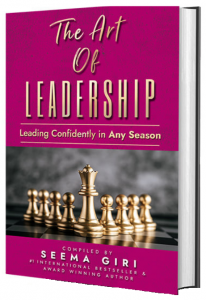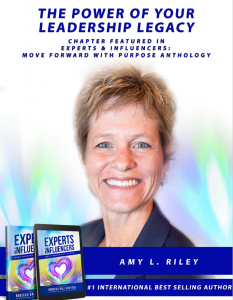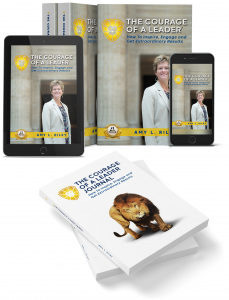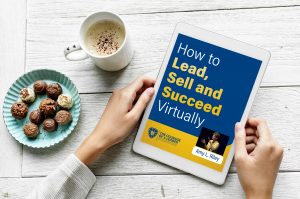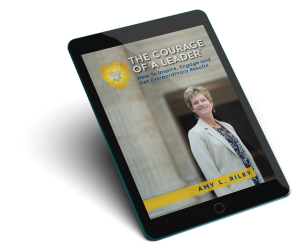My guest today is an inspiration. Barbara Best is clear about and focused on her purpose as co-founder of both Cap Strat and Cap Strat Women’s Forum. She knows the difference she wants to make with business owners and professional women and fearlessly focuses herself and those around her.
About the Guest:
Barbara Best is a Founder and Principal of CAP STRAT, and Founder of the CAP STRAT Women’s Forum.
Barbara primarily focuses on business development and raising awareness of her firm’s investment management and advisory services; and she co-leads their Women’s Forum.
Barbara is recognized as one of Chicago’s Most Influential Women by the Chicago Business Journal and Rotary International Woman of the Year for her broad personal and professional support of others, her community service and leadership. In addition to being in leadership for Women Leaders in Philanthropy of the Oak Park River Forest Community Foundation, Barbara is a board member of the Women in Entrepreneurship Institute at DePaul and Housing Forward, among other philanthropic activities.
https://capstratwomensforum.com/
About the Host:
Amy L. Riley is an internationally renowned speaker, author and consultant. She has over 2 decades of experience developing leaders at all levels. Her clients include Cisco Systems, Deloitte and Barclays.
As a trusted leadership coach and consultant, Amy has worked with hundreds of leaders one-on-one, and thousands more as part of a group, to fully step into their leadership, create amazing teams and achieve extraordinary results.
Amy’s most popular keynote speeches are:
The Courage of a Leader: The Power of a Leadership Legacy
The Courage of a Leader: Create a Competitive Advantage with Sustainable, Results-Producing Cross-System Collaboration
The Courage of a Leader: Accelerate Trust with Your Team, Customers and Community
The Courage of a Leader: How to Build a Happy and Successful Hybrid Team
Her new book is a #1 international best-seller and is entitled, The Courage of a Leader: How to Inspire, Engage and Get Extraordinary Results.
https://www.linkedin.com/in/amyshoopriley/
Links mentioned in the episode
The Brilliant Life Program: https://capstratwomensforum.com/programming/financial-strategies-to-support-your-brilliant-life/
Thanks for listening!
Thanks so much for listening to The Courage of a Leader podcast! If you got inspired and/or got valuable leadership techniques you can use from this episode and think that others could benefit from listening, please share using the social media buttons on this page.
Do you have questions or feedback about this episode? Leave a comment in the section below!
Subscribe to the podcast
If you would like to get automatic updates of new The Courage of a Leader podcast episodes, you can subscribe to the podcast on Apple Podcasts. You can also subscribe in your favorite podcast app.
Leave us an Apple Podcasts review
Ratings and reviews from our listeners are extremely valuable to us and greatly appreciated. They help our podcast rank higher on Apple Podcasts, which helps us ignite The Courage of a Leader in more leaders! Please take a minute and leave an honest review on Apple Podcasts.
Teaser for next episode
Visit us again in 2 weeks for the release of “Cutting-Edge Strategies from a Courageous Virtual Veteran” with Gloria Everett, President and CEO at The Mutual RRG.
Transcript
My guest today is an inspiration. Barbara Best is clear about and focused on her purpose as co founder of both cap strat and cap strat Women's Forum, she knows the difference she wants to make with business owners and with professional women. And she fearlessly focuses herself and those around her. I'm glad you're here today to hear how she does it.
Amy Riley:Welcome to the Courage of a Leader podcast. This is where you hear real life stories of top leaders achieving extraordinary results. And you get practical advice and techniques, you can immediately apply for your own success. This is where you will get inspired. And take bold, courageous action. I'm so glad you can join us. I'm your host, Amy Riley. Now, are you ready to step into the full power of your leadership and achieve the results you care about most? Let's ignite the courage of a leader.
Amy Riley:So Barbara, when I interviewed you for the courage of a leader book, and I asked you the question, how do you get others to focus on what really matters? I didn't fully realize how perfect of a question that was for you. Because I see how you organize your life and your work around what is important to you. The two organizations that you co founded represent important work to you. Can you tell us why?
Barbara Best:Oh, yeah, you know, that's been a gift that I've been able to do work that's so aligned with my purpose, because I really believe in serving others and help helping others fulfill their potential, whether that's colleagues that I have, or clients of ours, or women that are engaged in our women's forum. And so helping to inspire them, but then also to have them own their voice and power to make that happen for themselves. And for me to be a partner in that process is really fulfilling.
Amy Riley:I love that. I love that you can we can see it. So involved in the different leadership positions, like you are, Barbara, so much you are doing and so much you could be doing. How do you focus in on what's most important?
Barbara Best:That's hard? You know, I think sometimes everything's important. You know, I think that that is really challenging. I think it's often just taking a step back and pausing and looking at, okay, what are we trying to accomplish here, because there's always so many levers to pull and things at play. It's never really a neat, you know, straight line. And actually, I'd never think in a straight line, I'm always looking at, really the relationships that different things have to each other, which is a blessing and a curse, you know, because it can gets distracting around prioritizing, but really having the right team in place that can everyone be clear on the mission and what we're trying to accomplish. And stay focused on the topic at hand is so important. I mean, I in a meeting, I really when we get mission creep and meetings, I started to get the hives, right. So I can really, it's really important to me to help us get back on track to focus on what is the issue at hand. And if there's another issue that gets raised, which often there is great, let's put that aside. But let's stay focused on what is in front of us and what decision needs to get made on that issue. So then we can move forward and then then address other issues that will come after that. But really stay focused on what's that foundation, what's the fundamental issues that need to be addressed, and then build a path?
Amy Riley:What a gift Barbara, that you see that mission creep I met, you have that reaction to it. And you notice that because I think that there are so many teams and groups that don't notice it in the moment, right. And this would be good also, this would be good also, and it's all well intentioned. But then we've gotten ourselves away from what we what we said we were out to accomplish in the first place.
Barbara Best:Well, you know, and I don't want to discount the value of that collaborative brainstorm or some of those thoughts things that arise because it may be, hmm, I did not even think of that. So I don't want to think that I'm all knowing or even have that arrogance to suggest that this is what we need to be doing. This is the path we need to be going on. Like to be my god, yeah, the cure curious, right to be open enough as a leader to say, you know, I missed that. And that we need to incorporate that is, is really important. But, you know, when people are together and respond to things, then they can really it can be about them or where they're going. So trying to differentiate between something that absolutely needs to be integrated into a decision or into an issue and maybe require some reprioritization of what you initially thought we needed to focus on. And when we just need to make sure we're acknowledging someone's perspective, but then politely getting back on track, that's, sometimes I think, I just use the gavel a little when I need to keep the train moving down the drugs. And some, you know, it's, that's a little bit of a difficult balance, sometimes as a leader to figure out when to just really embrace everyone's ideas and just keep the train going. You know, and, and staying focused.
Amy Riley:Yeah, I was thinking about that same word, the balance of that. And we actually, we really appreciate it when our leaders use that gavel when it's needed.
Barbara Best:Yes, well, there, you can read the room a little bit on Zoom. It's a little harder to read the room. But there has been a challenge right over the past few years. And I'm sure it's virtual world is here to stay with us. But, you know, it does help to make sure that you're not the only one who's feeling this way. Because you can I think you can feel that energy in the room if you've got an engaged group.
Amy Riley:Yeah, yeah, well said. We are talking today to Barbara best. Barbara is the founder and principal of CAP strat and founder of cap strap Women's Forum. Barbara primarily focuses on business development and raising awareness of her firm's investment management and advisory services. And she co leads their women's forum was put on really valuable educational programming. Barbara is extremely generous with her strong network, offering to support and connect others to further their personal and professional goals. Let me underscore that as the recipient of her generosity. She's also passionate about supporting, empowering and advocating for others, especially women to own their voice and power over their financial resources. So they can make the most of their one amazing life. Barbara is recognized as one of Chicago's most influential women by the Chicago Business Journal and Rotary International Woman of the Year for her broad personal and professional support of others, her community service and leadership, in addition to being Chair of women's leaders in philanthropy, for the Oak Park River Forest Community Foundation, Barbara is a board member of the women and entrepreneurship Institute at DePaul and housing forward among other philanthropic activities. Barbara, thank you for being with me today to record this episode.
Barbara Best:To me, thank you so much for the privilege of being part of your podcast. I'm so excited about the work you've been doing to help give others courage to be the leader they can be.
Amy Riley:Thank you, Barbara. I appreciate that. So you've already talked about having the right team and being focused on the mission? How do you know you've got the right team?
Barbara Best:Well, I think, share there's an optimal team, it depends in, in an organization, especially a your business organization. You know, I think it takes time sometimes to realize that you have the right team or not in place, you can certainly feel that when you've got people that can really work together, be accountable, be respectful, people you can trust, you know, that probably needs to be reprioritized in that list, and that are engaged and committed to really to the business and to just supporting the growth of the other team members and clients and that you really have you get in a flow. And you can really feel that. Well. You know, I think we've seen that as we started our business. It was a startup and then as we've brought people in as we've nurtured some of those professionals, and they've grown and expanded their responsibilities, it's really there's almost been a natural evolution as to who's elevated into through the ranks and who have become partners as well. And I think it's tough when you have the wrong person in this in a seat. And, you know, but it can be really damaging to let someone maintain that role, just because of the impact it has on others and on the culture. So I think that's always challenging, and fill in larger organizations that there's a lot of those folks, you almost have, you know, it's so diffused that you don't feel it as much, right? I think, and really, I've worked in massive or major corporations where I was aware of that, but I didn't feel the magnitude, but I wasn't an owner also. So I may have had a different feeling about that. And I think in my role in nonprofits, you know, you are where you are, you know, you that happens easily happens, and you really work, to build alliances to manage around some of those folks, as needed. But that that's really status quo and different. And a nonprofit service where people are donating their time, and you're really grateful. But you really need to be aware of getting distracted or impacted negatively by some well intentioned people that might not be really adding value and helping you move forward with the mission of the enterprise.
Amy Riley:My picture emphasizing the impact that team members have on those around them, that we we want folks that are engaged in the work, yet we also want folks that are engaged with each other and focused on how do we how do we lift up the team? How do we support one another. And I think that's become more important than ever, in our virtual world, because there's some more intentionality that we need to bring to ensuring that we have a positive impact on those on our colleagues.
Barbara Best:Yeah, absolutely. You know, and that's not going away, I think, I think actually, that's missing, I think it's interesting, you know, we've been pretty flexible and being able to get back to the workplace. And a lot of our younger colleagues are the ones who really want to get back at the workplace because your will, when I think back and my started my career, that was a big important part of getting socialized into an organization and, and part of my professional development. And we do, we have some great programs and great interactions that we've structured to help maintain and build culture from the bottom up through some real vulnerable exchanges and learning experiences. And that's been super helpful. And we're gonna have to continue. And we've continued to look at ways of staying connected in a virtual environment. And that's going to be so important ultimately, you know, to retain people, right. They feel like they're part of something, it's harder to degenerate and gender, those feelings of community when we're in a virtual world, no matter how great technology is,
Amy Riley:yes, yes. Like that activities that have us sharing vulnerably personally, with the objective of better understanding one another, because when we better understand one another, we can better value each other's perspectives and experience and better understand how to how to interact effectively and in ways that work for the other individuals.
Barbara Best:Right, right. It building trust, especially in their in that process. Because if you don't trust the people you're with, it's hard to be vulnerable and know that it's okay. And to show that, that to reveal some of the personal side of things, especially when you're trying to present yourself whether you're here or here in the pecking order. You still want to be like, well, I want someone to have confidence in me if I like show this weak side of a Zack gonna have them change their perspective on who I am, what I can be, how I can contribute.
Amy Riley:Mm hmm. Comes back to trust. Yeah, it does. Right. Got that circled over here. Barbara, I know we were talking earlier about this notion of focusing what's on what's important. And I know you've come into a number of different leadership positions. Some appointed some you've created yourself because you're a co founder Tell us how you see the landscape, and how you see what is important for your leadership to step in and do.
Barbara Best:ogy in our firm, and March of:Amy Riley:Mission remained the same. Yet your focus on how to do it shifted in so many ways, I mean, not only be in person to virtual, which so many of us experienced, right, but now you are talking to a different cadence, you're talking a different duration, probably isn't some of a shift in topic.
Barbara Best:Oh, yeah, absolutely. Well, we were we really were focused on what do people need to hear? What do we need to help people deal with here. And so, you know, that was really important. And then in our firm, you know, the way we deliver investment and market updates is through the small video conversation with my other our Managing Principal, our founder, my colleague, and then another partner who runs our investment group. And that was really a way of helping deliver information in a time when that felt very irrational, didn't understand what was going on. And any kind of anything, you've got the mainstream population guide that you had to read, it was just buzzing in your head you really couldn't focus on. Let me read that paragraph, another a fifth time, right? But when you can hear two people having a conversation about what's going on, and put some rationality in the rational, you know, create rational explanations of what feels irrational. It was soothing, it was helpful. It was helping people calm down. And so we were really taking this approach in all aspects of our business, the Women's Forum platform, as well as in our core business.
Amy Riley:Yeah, yeah. The videos are easy to absorb.
Barbara Best:That's important, right? Yeah.
Amy Riley::Barbara Best:the essentials right? Here, when we did the Women's Forum work, I didn't, you know, I didn't try to compete with any other resources in the firm, because I knew that they, we had a really focus on doing a lot of good research what's happening in the markets, you know, we're an investment company. So let's make sure we're able to advise our clients, that we're managing all of that money in a way that's appropriate. And those resources can focus on that effectively. And then we can just leverage some of the technology out there on a platform and continue to support the women that were committed to supporting the men work, you know, we're committed to supporting in the different ways we support them. So you really, you know, I couldn't, it would be inappropriate for me to say, well, I need resources to help with this next Women's Forum event, when, you know, the world's on fire felt that way. And we had a lot of people who were, you know, so concerned with, with a market, volatility and what's happening that really wanted to make sure that we stay focused on delivering excellence to our clients. That's job one, always. Yeah, and it was really exciting in the nonprofit, I'm on the board of one of them the housing forward, we had to go from a pad shelter environment, where everyone's sleeping in a big room overnight, and a church usually right or a synagogue, to taking over hotel rooms, and finding places to house the homeless. And now, these, you know, the silver lining, which I believe so wholeheartedly and silver linings, especially with the pandemic, is we've changed the model completely on how we're going to help housing and secure communities. So it's, it's been an opportunity for us to really get out of that traditional patterns and push into new approaches. So it's affected, like, everyone so many different ways. And, you know, it's been, it's been a great, it's been a great growth experience, as much as it's, you know, I've climbed the walls a few times during the past couple of years.
Amy Riley:Yes, yes. Ditto. These walls, these walls right behind you, Barbara. Exactly. Again, another another example of a completely different way to fulfill the core mission.
Barbara Best:Yeah, well, right, because now we have these new risks that will be omnipresent. Also, for example, in the housing situation, we saw the mental and physical health of the people we serve, has improved tremendously, right? Have more stability, not just have a bit not, a lot of times the places they'd go for refuge during the day, we're close now, and they couldn't even go there. So yeah, there were some different needs to be that were fulfilled. And we did a better job doing it, there's still opportunities, right? Because it continue that mission and evolve it and pay attention and don't think we've solved it now. It's still an evolving process. And so we're mindful of that, you know, the Women's Forum, we, you know, we ended up we did those 30 minute meetups, when we would do our programs, usually twice a day in the morning in the evening, because now we had people around the country, people in Europe, you know, all over in Canada, all over the world, sometimes dialing into our programs. Yeah. And then we thought, well, you know, 30 is great, and you can accomplish a lot in 30 minutes at best, actually. But sometimes we need to give voice to a longer program, maybe make it more of a workshop have really more outcome of what people can accomplish. And so then we've shifted gears and gone to some lunchtime programs. And then we've done a better job now integrating networking, because not everyone's networking in person, or they aren't as often and so people are still looking for that. And so having those breakout, where people can connect in much smaller three to four, you know, five people at a time versus, you know, double digits is in triple digits as important. So now we continue to devolve and pay attention to what we're doing with our women's form to
Amy Riley:Yeah, thank you for your involvement in all of that work. I'm just I'm just thinking about the the ways in which it kept your eye on the shifting me.
Barbara Best:Well, ultimately, that's really what matters. We have to be careful we, that we don't just get in love with what we're doing and think, yeah, this is great, you know, we really have it down. Because then you know, it's going to change and really need to make sure you evolve your messaging too, because different people are at different stages of, of what's happening in their lives. So, yeah, we really want to make sure that we're meeting people where they are, but we're also helping to nudge them to where I think would be good places to be as well.
Amy Riley:That is an excellent point that you just made, Barbara that I know, challenges me and challenges many leaders, like we found something that works, really, let's just even say those half hour weekly meetups that capture at women's forum was putting on at the beginning of lockdown, right? That's a formula that works. Many would just be like, Oh, we keep doing that. And not have their eye on or have their eye on it too late. Right? What? How are things evolving? What's needed next? They move it moving to? I don't know, if it's the next version, or it's the next curve. Right? What's what's needed? And how do we make sure we're always out there thinking about the future needs?
Barbara Best:am that we run, we've run for:Amy Riley:Yes, yes. Yeah, and then how powerful when it's all aligned, right, we've got our purpose for our leadership, which I call leadership legacy, looking to that purpose to guide us in our choices and how we show up in every interaction and for every project that we're engaged in, and then yeah, when we've got our why for our organizations, why are we doing what we're doing? What are these events, providing for women, keeps us, us focused on on what's most important. So just so powerful to bring the purpose into all the work that you do with educating and supporting people with their finances.
Barbara Best:And it's so funny to me, because sometimes I'm like, God, we talk way too much about purpose, and then I'll be at an event. And there it comes. Again, it's every, you know, purpose. And I'm like, Nope, this is so important. I was at an event. And they the keynote at lunch, showed a video that they produce for their organization that I cried through. And I'm like, we need to keep talking about purpose. You know, when I, when other people show videos about how they're being purposeful in their work, and just how fulfilling that is, it's, it just is a reminder of, that's why we're here, that's what we're trying to do. That's what's so important to do and be connected to.
Amy Riley:Yeah, how do you make sure you're focusing on what's most important, when there are all of these shiny objects and pieces of information and possible things to do in front of us? It's being clear on that purpose.
Barbara Best:That's tough, you know, it's it, you could get overwhelmed and caught up in things and but you're right, you know, getting grounded and having that time building time into just take a step back and reframe, it's just to make sure you're on that right path is, it's easy to get, just to get caught up in the in the doing versus the being, and there's a balance, yeah, sometimes you just gotta crank things out. But as long as you build enough pauses, in check ins with your team, with your clients, you know, with where the markets going, then you know, you can keep doing that good work that's going to help sustain the strength and growth of your organization, and sustain and grow the success of the people you're serving. Certainly.
Amy Riley:Well, Fred, Barbara, I want to underscore a couple of things that you just said, because we're talking about the the importance of staying connected to your purpose. But how do we do that day to day, and it's the step back, and it's the reflection, and making sure you've got those check ins, with your team, with your colleagues, with your stakeholders, right and building that into our calendars. Otherwise, all of a sudden, two months have gone by, and we're, you know, our noses buried in the weeds.
Barbara Best:Yeah, that's, that's a, that's been an ongoing challenge of mine. And so I've built in. And I've gotten much better recently about having a consistent morning ritual. It starts out with some loving kindness affirmations, for myself and for others in my life, and then a couple of gratitudes. And then I have a time scheduled for physical work, whether that's a lot of yoga, which I is also I think, moving meditation, a lot of ways, but it's very physically challenging. And then I do a little meditation as well, I build that into my day now. And a little journaling. I used to journal a lot and I really gave it up but and then I, but I do I do a bit of journaling. And then I record to check that I've been doing the different aspects of my fulfilling my morning ritual to a little self accountability, and doing my to dues, really prioritizing what is what am I looking to accomplish professionally, and then a couple of personal things I'm looking to accomplish and managing that lists on a daily basis.
Amy Riley:Oh, thank you for sharing your morning ritual with us. We do have to intentionally plan to pull that attention back to a broader, bigger picture view. Otherwise, we are human doings, and we get it. And we've got to intentionally create that mental space to take that step back to see what we're not seeing when we're in the midst of driving forward with tasks. Oh, oh, go ahead.
Barbara Best:No, I was just gonna say so I worked with a coach last Fear. And we we nicknamed that part of me when I don't do that is the fast train to nowhere, you know? Because, like, literally, I met high speed full speed ahead, but going nowhere, and I can get out of control and when I could get grounded in that ritual. I mean, it's just it's based on science, not woowoo. Right? It's like it just really helps you get grounded and all that noise and clutter that's still out there. Yeah, it's just not attacking me. My brain in my soul.
Amy Riley:Get off the train and nowhere. I love it. Barbara, thank you so much for your time today. So many great messages, concepts, rituals that you shared with us today. I appreciate your time and your sharing of your experience.
Barbara Best:Thank you for giving me the opportunity to spend time with you, Amy and for what you're doing to serve others. I really, really appreciate that.
Amy Riley:My pleasure. Thank you, Barbara.


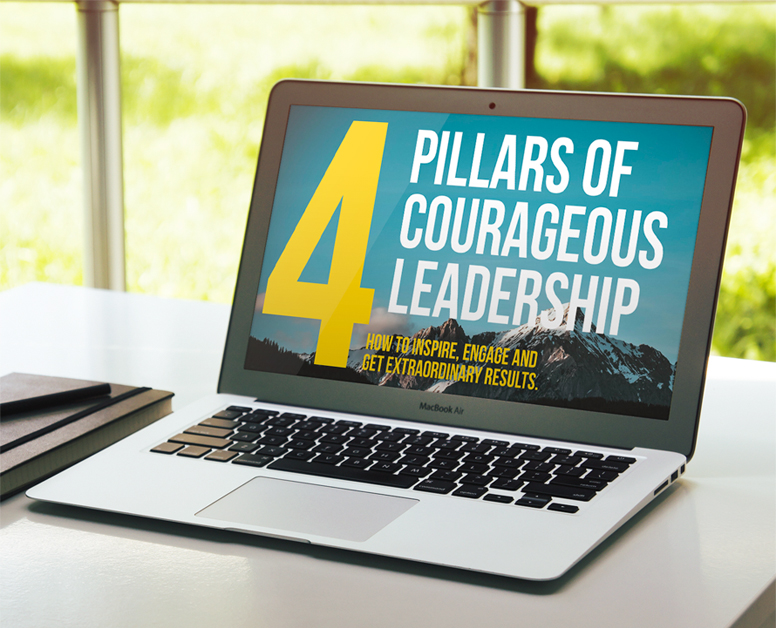 A Summary of The Courage of a Leader® 4 Pillars
A Summary of The Courage of a Leader® 4 Pillars